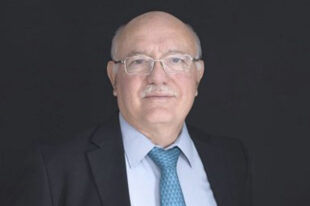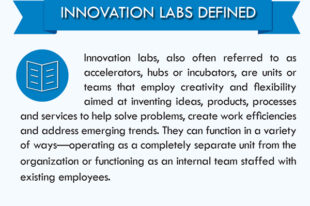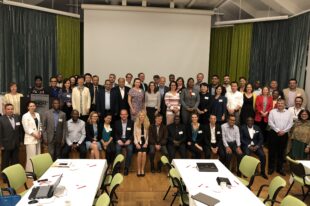The Professional Standards Committee (PSC) met virtually on October 6, 2020, to discuss past accomplishments and future initiatives with an agenda that featured such topics as PSC strategic objectives and crosscutting priorities, international standards, the network of standards liaison officers (ISLO) Technical Support Function (TSF) and Strategic Development Plan (SDP) progress.
In his opening remarks, Bruno Dantas, Minister, Federal Court of Accounts–Brazil (TCU), PSC Chair, highlighted the meeting’s importance to the International Organization of Supreme Audit Institutions (INTOSAI) community in discussing key issues for INTOSAI standard setting.
Dantas reminded members of the INTOSAI Framework of Professional Pronouncements (IFPP) launch at the INTOSAI Congress in Russia and noted the migration process from the International Standards of Supreme Audit Institutions (ISSAI) Framework to the IFPP provided an interesting framework perspective, particularly in how all of the elements can come together to simplify and improve document clarity.
He noted the Forum of INTOSAI Professional Pronouncement (FIPP) invite to the PSC Steering Committee last year—to think about “the next generation of ISSAIs.” This perspective provided the impetus to include a review process in the current SDP, the first results of which were presented and discussed by Steering Committee members.
The aim, he added, is to “ensure standards relevance, engage future thinking, and interweave output with all INTOSAI goals.”
The SDP progress report, designed to highlight completed work and offer insight to better understand the current environment, included a more in-depth look into PSC strategic objectives and crosscutting priorities; document relevance, applicability and accessibility; and continued cooperation with external partners, including the International Federation of Accountants and International Auditing and Assurance Standards Board.
Radek Majer, Assistant to the Director for Audit Quality Control at the European Court of Auditors (ECA)—PSC Vice Chair—emphasized the review’s value as a mechanism for improvement and significant step on the journey for the future of the IFPP. Majer noted the feedback, along with continued analysis to identify options, costs, and benefits, can be used as the foundation for recommendations and future work.
“Further examining and transforming how the framework is presented and organized is imperative. If we don’t do this, who will? The standards get to the heart of what we are as a profession, and remaining in the past runs the risk of falling into irrelevance,” stressed Geoffrey Simpson, ECA Director for Audit Quality Control.
Given the relatively recent migration, some cited alternatives to changing the framework, such as more effectively distinguishing between standards and guidance (GUIDS) and emphasizing GUIDS as tools for the common auditor. Ultimately, the goal is to ensure the framework is easily understandable and aids in enhancing public auditing flexibility and effectiveness.
“The framework is intended to be professional and inclusive with an underlying concept that the principles reflect an exchange of experience and knowledge,” underscored Monika Gonzalez-Koss, Director, INTOSAI General Secretariat.
Inclusiveness remains paramount in all activities, and the PSC remains committed to improving standard setting, strengthening cooperation across INTOSAI and ensuring initiatives reflect the INTOSAI motto, “Mutual experience benefits all.” Efforts include revising current ISSAIs, issuing new ones, devising additional guidance on implementing INTOSAI principles, and leveraging the TSF. The TSF, which recently appointed three members from the Supreme Audit Institutions of Finland and Tanzania, will work closely with INTOSAI Goal Chairs and the FIPP to assess needs and investigate issues.
“Professionalization means all hands on deck,” offered Jan van Schalkwyk, Corporate Executive with the Auditor General of South Africa, which chairs INTOSAI’s Capacity Building Committee.
Paula Hebling Dutra, Director of International Cooperation, TCU, closed the meeting stressing ongoing discussions between INTOSAI’s three goal chairs—to build on joint standard setting responsibilities and reflect on other goal objectives, including “how our work intersects and is mutually supported.”
“We embarked on extensive brainstorming and established principles we want to take forward for the next strategic planning cycle, proposing to work closely together on standard setting as well as in all of our activities.”






